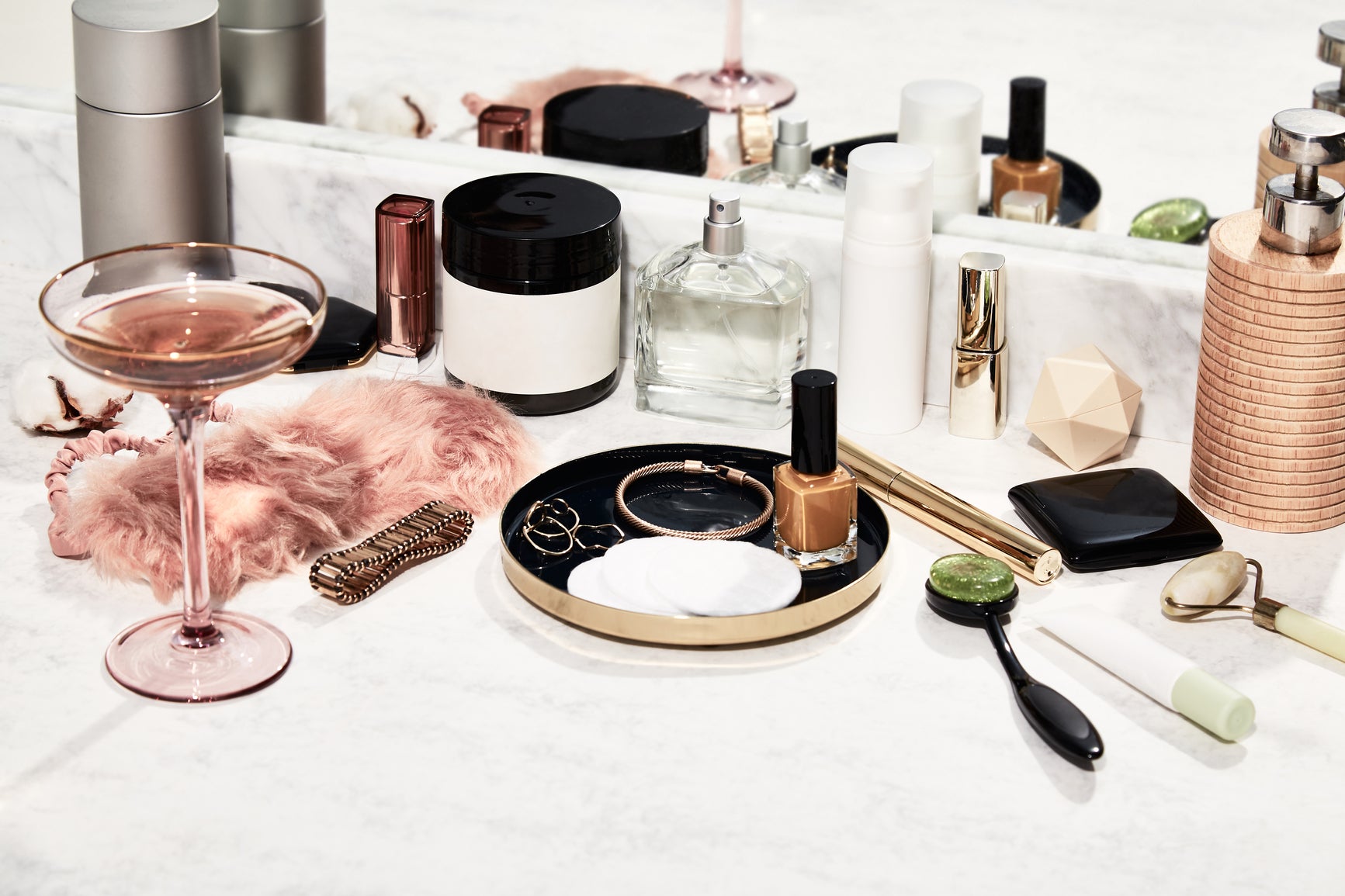The Scoop
Do My Skincare Products Expire?
Holding on to skincare products past their prime is not going to help improve your skin. You may in fact be doing damage to your skin by using products that should have been thrown away a few months ago.
by Kate Grant
2 years ago

Did you know that most mass-produced skincare brands purposely increase the shelf life of their products with preservatives like parabens, phenoxyethanol, urea, triclosan, BHA / BHT? They do this to help extend the life of the formula, so they can produce larger batches (lowering their costs with bulk price rates) without running the risk of the formula going bad while in sits in a warehouse, or on a retail shelf for months on end. When you factor this together with the time it takes you to use a product, that formula could be well past its peak performance.
Holding on to skincare products past their prime is not going to help improve your skin. You may in fact be doing damage to your skin by using products that should have been thrown away a few months ago.
The closer products are used to the time they are made, the more potent the active ingredients are – which is KEY to maximizing your skincare results.
Most skincare products contain a mix of antioxidants, vitamins and other actives. No matter how fancy the packaging, these ingredients will start to deteriorate and breakdown over time. Take Vitamin C for example: if you use a Vitamin C product that has oxidized (turned yellowish brown or beige) then you are actually doing more damage to your skin than had you used nothing at all.
How to tell if you should throw away an old skincare product?
⦁ If the product has changed color since you purchased. Toss it.
⦁ If it has a weird smell (often sour or rancid), or has changed texture (more runny, grainy, lumpy), definitely throw it out.
⦁ If the product feels different on your skin, or causes an unusual reaction like stinging, redness or acne breakout, then it is time to say goodbye.
We recommend using your skincare products within 6 months of purchasing them, regardless of the brand. Our formulas are specifically designed to create a visible difference in your skin with regular use – if you are using the products as directed you should be through them well within the 6 month window.
Need a reminder of when you should say goodbye to the product? We got you covered with an email, but it doesn’t hurt to write the date on the packaging with a permanent sharpie.
At Free Agent Skincare, we manufacture our products in small, fresh batches - ensuring that you get our formulas at their maximum potency, for fast results.
Why is Fresh so important to us?
⦁ Products with active ingredients are at their most effective after they are just made. You are paying for products that should deliver the maximum possible results.
⦁ If you really like a product and it is actually doing something for your skin, then you will use it regularly, so there is no need to chemically extend the life cycle of the product.
⦁ We believe that in today’s world, there is no reason to add harsh preservatives into skincare products, just to increase their shelf life.
At Free Agent, our goal is to create fresh, effective, small batch skincare that is free from strong synthetic preservatives and is delivered to you at peak efficacy for fast results.
Preservatives Free Agent never uses:
⦁ Parabens – A group of chemicals commonly used as preservatives in skincare formulations. Parabens possess estrogen-mimicking properties that are associated with increased risk of breast cancer and fertility issues. These chemicals are absorbed through the skin and have been identified in biopsy samples from breast tumors. Studies show findings that parabens can actually spur the growth of certain types of cancers.
⦁ Phenoxyethanol – A synthetic preservative that is widely used in “clean” skincare and cosmetic formulations in the US. There is some debate about this one… A study out of the International Journal of Toxicology claims that the low percentage of phenoxyethanol used in cosmetic products (generally two percent or below) is safe and non-toxic. The European Commission on cosmetic ingredients stipulates that phenoxyethanol is toxic when applied to the lips or around the mouth. The FDA placed a warning to nursing mothers about using a brand of nipple cream that contained phenoxyethanol, stating that it could cause vomiting, diarrhea, dehydration, and central nervous system problems in infants.
⦁ Formaldehyde (and Formaldehyde releasing preservatives) - This chemical was deemed as a human carcinogen by The International Agency for Research on Carcinogens (IARC) and has been linked to occupational related cancers: nasal and nasopharyngeal. It is known to cause allergic skin reactions and it may also be harmful to the immune system.
⦁ Imidazolidinyl Urea / Diazolidinyl Urea – Used as preservatives and may release formaldehyde which is deemed a toxic chemical.
⦁ Triclosan – A widely used antimicrobial chemical that’s a known endocrine disruptor — especially thyroid and reproductive hormones, and a skin irritant. Studies raise concerns that triclosan contributes to making bacteria antibiotic-resistant.
⦁ BHA (butylated hydroxyanisole) / BHT (butylated hydroxytoluene) – These are synthetic antioxidants that are used to extend shelf life and are likely carcinogens and hormone disruptors that may cause liver damage.

0 comments